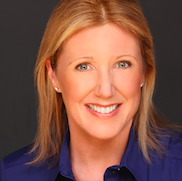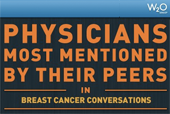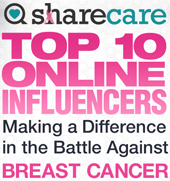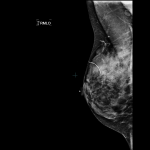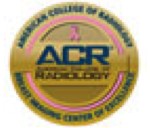Q&A: Thyroid Shield?
October 9th, 2012Should my thyroid be shielded when I have a mammogram?
- This issue received media attention when Dr. Oz highlighted a study showing a significant increase in thyroid cancer in the U.S. since 1998, and he theorized that this is due to radiation exposure to the thyroid gland during annual mammography. It is highly unlikely that mammography can be blamed for this increased incidence, as it seen in both women AND men, and men do not receive screening mammograms. A recent paper estimated that the lifetime risk for thyroid cancer
Q&A: Are Mammograms Dangerous?
October 8th, 2012What is the radiation dose of a mammogram? Is it dangerous?
- For digital mammography, the average radiation dose from a standard 4-view mammogram of both breasts is 3.7mGy; for film-screen mammography (not digital), the average dose is 4.7mGy. Data suggests that if there is any risk for developing breast cancer because of screening mammography, it is extremely small. In the Swedish Two County Trial, over 100,000 women have had repeated mammograms since the 1970’s, and the screened group has no more cancers than the group
Questions and Answers to Honor Pink October 2012
October 5th, 2012Question: What …
Read MoreDiagnosed with Breast Cancer at Age 29, Lori Kennedy Shares Her Story 20 Years Later
November 21st, 2011Looking at her today, you’d never guess that my mom friend Lori Kennedy had been through the gauntlet of breast cancer diagnosis and treatment at the age of 29. A mutual friend introduced us several years ago, and after Lori learned that my field is breast imaging, she mentioned that she’d had breast cancer years before. I was intrigued by her story, and thought it would be helpful to share in “The Breast Diaries.”
The Shock of Diagnosis
In April of 1992 Lori was 29 years old, living the single life in Hoboken and working successfully in sales. She had been dating a man…
Read MoreResponse to NY Times article: Mammogram’s Role as Savior Is Tested
November 2nd, 2011Tara Parker-Pope’s recent article in the New York Times Science Section discounts the role of mammography as an essential tool in the quest to save women from premature death due to breast cancer. She reports on the conclusion drawn by researchers Welch and Frankel from Dartmouth, who published a statistical analysis using epidemiologic data and computer software in this article in Archives of Internal Medicine this month. Their conclusion: “Most women with screen-detected breast cancer have not had their life saved by screening. They are instead either…
Read More8 Things You Can Do TODAY to Lower Your Risk of Advanced Breast Cancer
October 29th, 2011Breast Cancer Awareness Month ends on Monday. Of course awareness is important, but knowing what specific actions you can take to protect yourself against the disease is empowering. Breast cancer can strike anyone, with or without risk factors. However, there are several things you can do NOW to lessen the likelihood of advanced breast cancer happening to you.
1. Lace up and take a walk! According to the Women’s Health Initiative study, women who walked just 30 minutes per day at least 5 days a week (exercise pace, not a leisurely stroll) decreased their breast…
Read MoreChristina Applegate Foundation Gives Direct Financial Aid for Breast MRI
October 6th, 2011In 2009, the year after she was diagnosed with breast cancer at age 36 after a screening Breast MRI test, actress Christina Applegate founded Right Action for Women (www.rightactionforwomen.org), a foundation dedicated to educating women about what it means to be at “high risk” for breast cancer.
In addition to education, the foundation offers financial assistance for women 45 years old and younger, with a family history of breast cancer or with a positive BRCA gene test, to gain access to Breast MRI, regardless of insurance status. Insurance companies often …
Read MoreWhen Should I Have My First Mammogram?
October 4th, 2011General Guidelines
For most women, age 40 should be when you start having yearly mammograms in order to minimize your likelihood of developing advanced breast cancer (“Government Mammography Task Force vs. You”). Some doctors send their patients for a baseline mammogram at age 35, and I wouldn’t argue with that.
Family History
If you have a strong family history of breast cancer (mother or sister), start having your mammogram 10 years younger than the age that relative was diagnosed, OR at age 40, whichever is younger. For example, if your sister had breast cancer…
Read MoreGovernment Mammography Task Force Vs. You
September 26th, 2011Top 9 Reasons Why the Government Panel Recommendations on Mammography are Bad for Your Health
If the 2009 USPSTF (U.S. Preventive Services Task Force) recommendations are followed, as many as 20% of breast cancer deaths will be in women who could have been saved. The USPSTF knew this when they issued their report.
1. The Task Force’s own data shows that the most lives are saved by starting mammography screening at age 40, but they chose to ignore that data. They made a value judgment as to how much a woman’s life is worth. The science clearly shows that starting annual …
Read MoreHow Do I Know If I’m High Risk?
September 16th, 2011If any of the following risk factors apply to you, you might be at high risk. Talk to your doctor:
- Do you have a family history of breast cancer (both your mother and your father’s sides count!)? The highest risk is if you have a mother, sister, daughter, father, brother or son with breast cancer. But other relatives– grandparents, aunts, cousins– are important to consider as well.
- Have you had breast cancer yourself in the past? If so, you have 10x the risk of the average woman for developing a new cancer.
- Do you have dense breasts? (“What Breast Density

